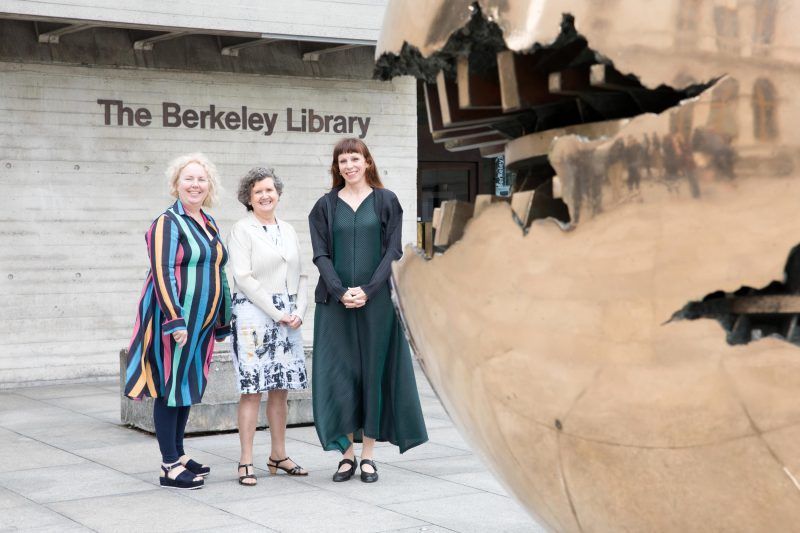Open Scholarship is focus of European libraries conference
Posted on: 27 June 2019
The importance of Open Scholarship for the future of universities and society was underlined at the opening of LIBER Europe’s 48th Annual Conference at Trinity College Dublin this week.
Librarians and archivists from all over Europe attended the LIBER conference, a network of 450 European research libraries. This is the first time the conference has been held in Ireland. It has been organised by the Library of Trinity College Dublin in partnership with CONUL, a consortium of Ireland’s main research libraries.
Across the world we are witnessing transformative shifts in Open Scholarship or Open Science as it is also known. Scholarship is no longer solely the creation of those lucky enough to participate in academia, but rather where citizens and communities can question research, shape it and reap its rewards. It represents a culture change for our universities and research libraries involved in the creation, storage and dissemination of research. In the course of today’s proceedings LIBER will be discussing that roadmap for cultural change.
Minister for Culture, Heritage and Gaeltacht, Josepha Madigan said on the occasion of the conference: “I am delighted this conference is taking place at Trinity College. Dublin is a UNESCO City of Literature and a veritable ‘City of Libraries’, a centerpiece of which is Trinity’s beautiful Long Room. As an Enlightenment Library exploring new frontiers of knowledge in the 18th century, it is an appropriate location for today’s conference which is focusing on ‘Research Libraries for Society’.”
Librarian and College archivist, Helen Shenton added: “The theme of ‘Research Libraries for Society’ is very timely, reflecting the big societal shifts underway and the global challenges we face. Not only citizen science, but public participation and co-curation of research and civic action also have enormous potential to capitalise on the ‘Open’ movement. The changing demographic, societal changes and technological developments mean that life-long learning, with innovations such as blended online learning, is becoming increasingly important. In creating this roadmap, libraries are critical in ensuring the delivery of the tools and services to maximise Open Scholarship.”
Continuing with this theme, Dean of Research, Professor Linda Doyle gave the opening key address on ‘Research for Society – the new world of public engagement, citizen science, community and civic action’.
In her talk she explored why research matters to society. She looked at the invisible (often digital) forces shaping our daily lives to show how important it is that these are firstly understood and secondly driven in the direction that is best for our world. They include Internet of Things, artificial intelligence and new forms of currency among others.
Professor Doyle said: “The role of the citizen in developing this understanding and interrogating the physical and digital world around us is central. Co-creation of research can be facilitated through creative arts practices as well as more traditional research methodologies and new forms of civic action that might take place. Crucially the library of today and the library of the future sits within this space.”
President of LIBER, Jeanette Frey, concluded: “Open Science is an inspiring societal movement. Through the many achievements of our members, the 2019 LIBER conference showcases the role of research libraries in realising its great vision”.

Topics for discussion during the conference include the implementation of Open Scholarship practice, linked data, the future of collections and connecting with partners in society.
